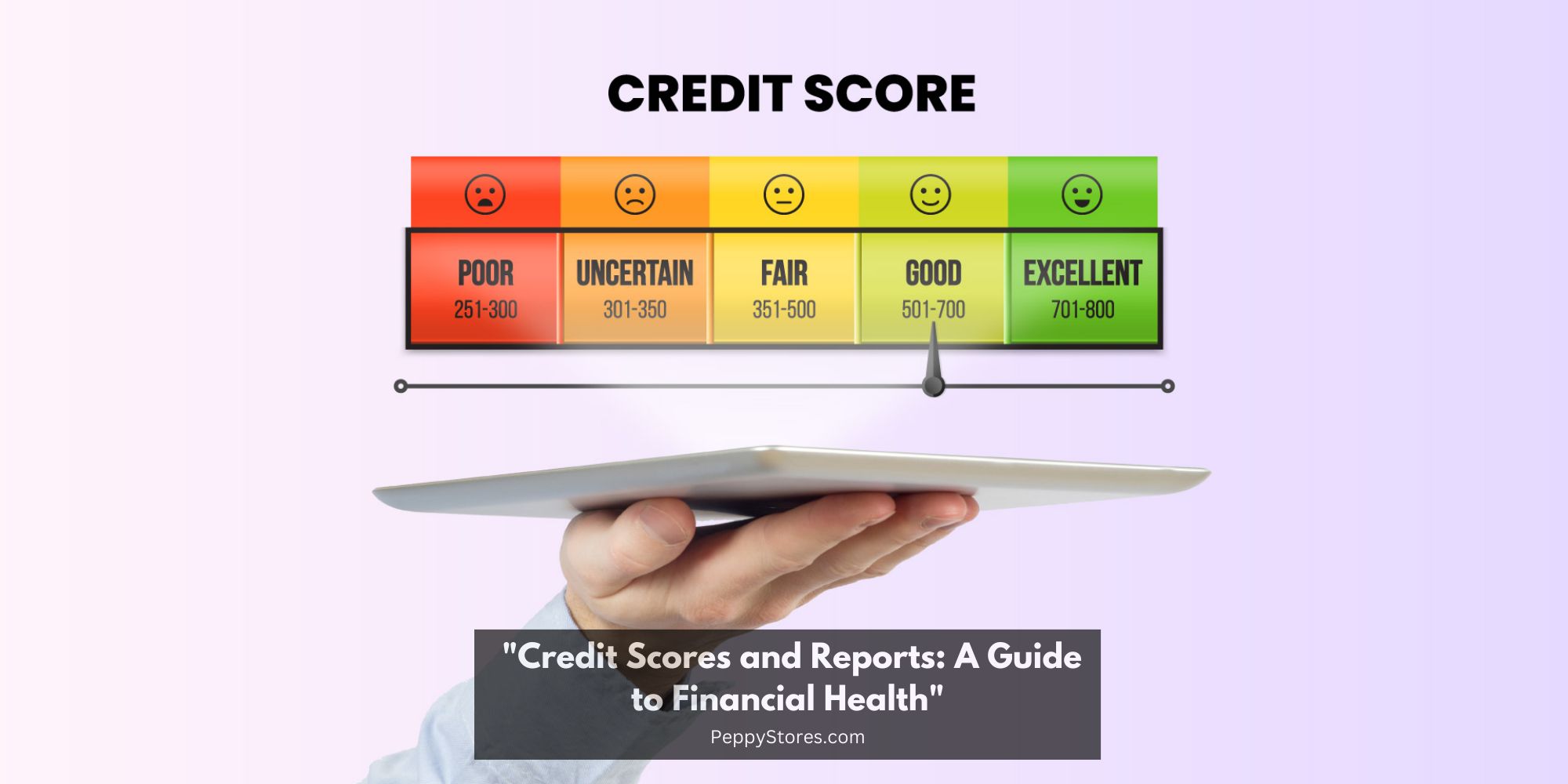Your credit score is more than just a number; it’s a powerful tool that can significantly impact your financial well-being. Whether you’re applying for a mortgage, seeking a car loan, or even trying to secure a rental property, your credit score plays a crucial role. In this comprehensive guide, we will delve into the intricacies of credit scores and reports, providing valuable insights and actionable tips to help you navigate the world of credit and achieve financial success.
Understanding Credit Scores
1. What is a Credit Score?
Your credit score is a numerical representation of your creditworthiness, indicating how likely you are to repay borrowed money. In the United States, the most widely used credit scoring models are FICO® Scores, ranging from 300 to 850. The higher your score, the more favorable terms you’re likely to receive on loans and credit.
2. Factors Influencing Your Credit Score:
Payment History (35%): Timely payments on credit accounts, such as credit cards and loans, have the most significant impact on your score.
Credit Utilization (30%): This ratio compares your credit card balances to your credit limits. Aim to keep this ratio low to positively impact your score.
Length of Credit History (15%): The longer your credit history, the better. It includes the age of your oldest account, the average age of your accounts, and the age of your newest account.
Types of Credit in Use (10%): A diverse mix of credit, including credit cards, installment loans, and mortgages, can positively impact your score.
New Credit (10%): Opening multiple new credit accounts in a short period may be viewed as risky behavior.
3. Checking Your Credit Score:
You are entitled to a free credit report from each of the three major credit bureaus—Equifax, Experian, and TransUnion—once a year. Many credit card issuers also provide free access to your FICO® Score. Regularly checking your score allows you to track your financial progress and catch any errors that may impact your credit health.
4. Credit Score Ranges:
Excellent (800-850): Individuals in this range typically qualify for the best interest rates and loan terms.
Good (670-799): A good score indicates a solid credit history, although interest rates may not be as favorable as those for excellent scores.
Fair (580-669): While still eligible for credit, individuals in this range may face higher interest rates and less favorable terms.
Poor (300-579): A poor score can make it challenging to qualify for credit, and if approved, terms may be unfavorable.
Building and Maintaining Good Credit
1. Pay Your Bills on Time:
Timely payments have the most significant impact on your credit score. Set up reminders or automatic payments to ensure you never miss a due date.
2. Manage Your Credit Utilization:
Keep your credit card balances low in relation to your credit limits. Aim for a credit utilization ratio below 30% to positively impact your score.
3. Diversify Your Credit Mix:
While you shouldn’t open credit accounts solely for this purpose, having a mix of credit types, such as credit cards and installment loans, can positively impact your credit score.
4. Avoid Opening Too Many New Accounts:
Opening several new credit accounts in a short period can be seen as risky behavior and may negatively impact your credit score. Only apply for credit when necessary.
5. Check Your Credit Reports Regularly:
Review your credit reports annually for inaccuracies. Dispute any errors promptly, as they can negatively impact your credit health.
6. Keep Older Accounts Open:
The length of your credit history matters. Closing older accounts can shorten your credit history, potentially impacting your credit score.
Repairing and Rebuilding Credit
1. Addressing Negative Items:
If you have negative items on your credit report, such as late payments or collections, work to address and rectify them. Settle any outstanding debts and negotiate with creditors if necessary.
2. Secured Credit Cards:
Consider obtaining a secured credit card to rebuild credit. Secured cards require a deposit, and your payment history is reported to credit bureaus.
3. Credit-Builder Loans:
Some financial institutions offer credit-builder loans designed to help individuals establish or rebuild credit. These loans are typically secured, and your repayment history is reported to credit bureaus.
4. Seek Professional Guidance:
If you’re struggling with significant credit challenges, consider seeking assistance from credit counseling agencies or credit repair services. Be cautious and research thoroughly before choosing any service.
Using Credit Wisely
1. Responsible Credit Card Use:
Credit cards can be valuable tools when used responsibly. Pay your balance in full each month to avoid interest charges, and only charge what you can afford to repay.
2. Understanding Interest Rates:
Interest rates can significantly impact the cost of credit. Compare rates when considering loans or credit cards, and be aware of the terms and conditions.
3. Building Emergency Savings:
Having an emergency fund can help you avoid relying on credit for unexpected expenses, reducing the risk of accumulating debt.
4. Long-Term Financial Planning:
Consider your credit health as part of your long-term financial plan. A strong credit history can open doors to better financial opportunities, including lower interest rates on loans and increased access to credit.
Protecting Your Credit
1. Monitor Your Accounts:
Regularly review your bank and credit card statements for any unauthorized or suspicious activity. Report any discrepancies to your financial institution promptly.
2. Identity Theft Protection:
Consider subscribing to an identity theft protection service to monitor your personal information and receive alerts about potential fraudulent activity.
3. Freeze Your Credit:
If you’re concerned about identity theft, you can freeze your credit with the three major credit bureaus. This prevents new accounts from being opened in your name without your consent.
4. Secure Personal Information:
Safeguard your personal information, including Social Security numbers and financial account details. Be cautious about sharing sensitive information online and shred important documents.
Conclusion
Understanding credit scores and reports is essential for achieving and maintaining financial health. By actively managing your credit, making informed financial decisions, and addressing challenges proactively, you can build a strong credit history that opens doors to a brighter financial future. Remember that good credit is a journey, not a destination, and each positive financial choice contributes to your overall credit health. Empower yourself with knowledge, take control of your financial destiny, and pave the way for a secure and prosperous financial future.




